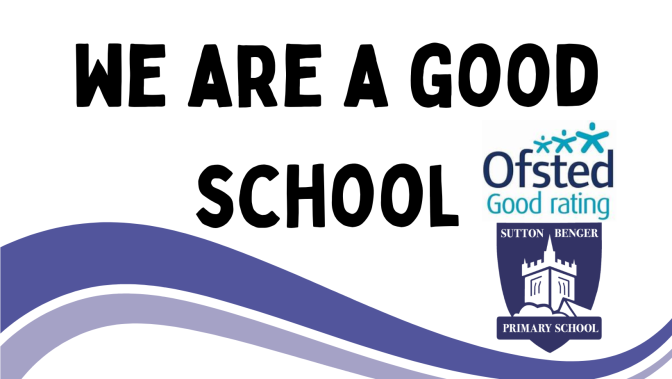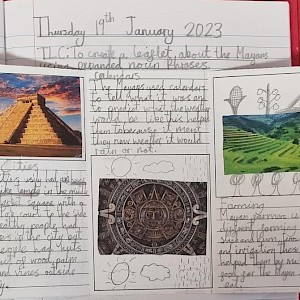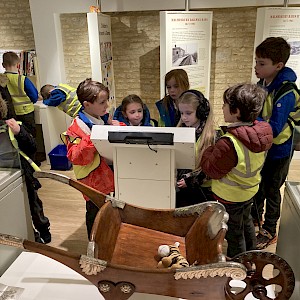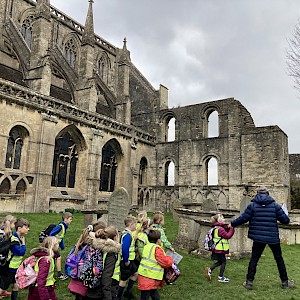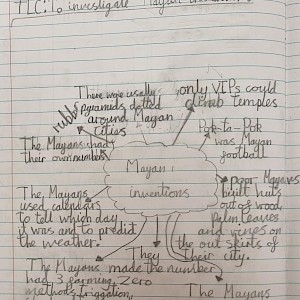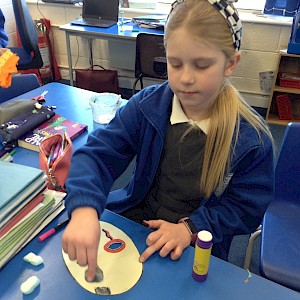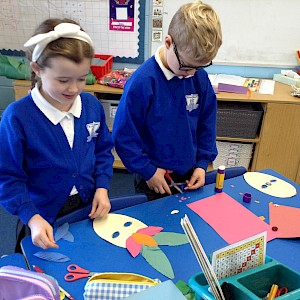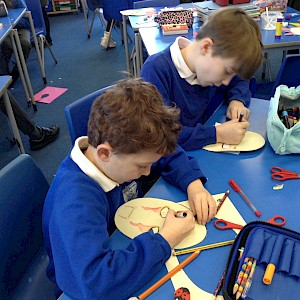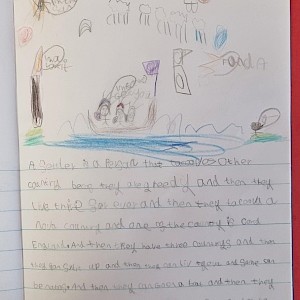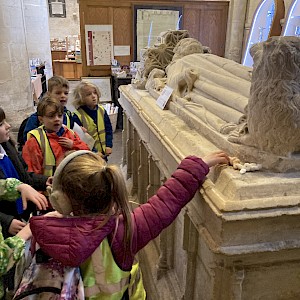History Curriculum Approach
INTENT:
At Sutton Benger CE Primary School, we recognise the importance of history in our daily lives. We aim to instil a love of history and we want our children to be curious and to ask questions to develop their understanding of Britain’s past and that of the wider world. Our history curriculum is deliberately knowledge and vocabulary-rich as we believe it is vital to acquire a cumulatively sufficient understanding of key historical concepts and perspectives. We also recognise and value the need to develop methods of historical enquiry and so our children are fully immersed in units of learning that allow them to learn, grow and flourish within the history curriculum.
In conjunction with the aims of the National Curriculum, our history curriculum offers opportunities for children to:
- Know and understand the history of these islands as a coherent, chronological narrative, from the earliest times to the present day: how people’s lives have shaped this nation and how Britain has influenced and been influenced by the wider world;
- Know and understand significant aspects of the history of the wider world: the nature of ancient civilisations; the expansion and dissolution of empires; characteristic features of past non-European societies; achievements and follies of mankind;
- Gain and deploy a historically grounded understanding of abstract terms such as ‘empire’, ‘civilisation’, ‘parliament’ and ‘peasantry;
- understand historical concepts such as continuity and change, cause and consequence, similarity, difference and significance, and use them to make connections, draw contrasts, analyse trends, frame historically valid questions and create their own structured accounts, including written narratives and analyses;
- Understand the methods of historical enquiry, including how evidence is used rigorously to make historical claims, and discern how and why contrasting arguments and interpretations of the past have been constructed;
- Gain historical perspective by placing their growing knowledge into different contexts: understanding the connections between local, regional, national and international history; between cultural, economic, military, political, religious and social history; and between short- and long-term timescales.
IMPLEMENTATION:
History is blocked as units of learning within a 39-weeks curriculum map. The children take on the state of being of ‘Being a Historian’ and are fully immersed in a curriculum unit that is dedicated to history, with pre-existing knowledge from other curriculum areas used to support where possible. Knowledge Organisers are provided for every history unit and they include the foundational knowledge needed first in order to access next learning. Subject specific knowledge is also included which allows pupils to then apply when thinking critically within the unit. The implementation of history in this way supports children to become fully secure in each history unit as well as supports them to build progressive understanding of the key concepts that are woven throughout the curriculum. To support high quality planning and assessment, teachers draw upon knowledge from the school’s history subject leader, as well as from experts within our multi-academy trust, DBAT.
To ensure a cumulatively sufficient curriculum, key concepts are woven throughout. Our curriculum is designed to ensure that all children access the key concepts within a range of units as they progress throughout the school e.g. chronology or society. They are challenged to meet learning expectations for their key stage. Key concepts are referred to throughout the curriculum units so that children are given opportunities to recall and retrieve knowledge in order to support them to build upon it.
Our curriculum is vocabulary-rich encouraging children to use a wide vocabulary of everyday historical terms. All historical vocabulary which is key to the unit is included as part of the Knowledge Organiser and is referred to throughout the unit. Children are given opportunities to develop and practice their vocabulary and oracy so that they become confident historians who can develop, expand on, and articulate their own perspectives of the world around them.
At Sutton Benger CE Primary School, children are taught a balance of historical knowledge and enquiry skills. They work historically and make links with other areas of learning in subjects such as geography, maths, forest school and computing. Through historical enquiry, children are encouraged to: address and devise historically valid questions, compare and contrast trends overtime, explore a range of sources, and organise relevant historical information to inform written and verbal thinking.
IMPACT:
Children at Sutton Benger CE Primary School enjoy ‘Being Historians’ and flourish within our curriculum. They are able to use their curiosity and their knowledge to make meaning of the world around them through a deep understanding of historical concepts and perspectives. They are able to make connections and think critically about their existing history learning so that they can apply this to new learning.
Our curriculum allows for excellent progress over time and children are exposed to a wide range of units that build cumulatively. Children are able to confidently share, discuss, analyse and write as Historians.
Our curriculum allows children to develop their historical knowledge, enquiry, and understanding of key historical concepts. This means they gain a deeper understanding of the world around them and are building the foundations for further learning in these areas as they move on to the next stage of their education.
